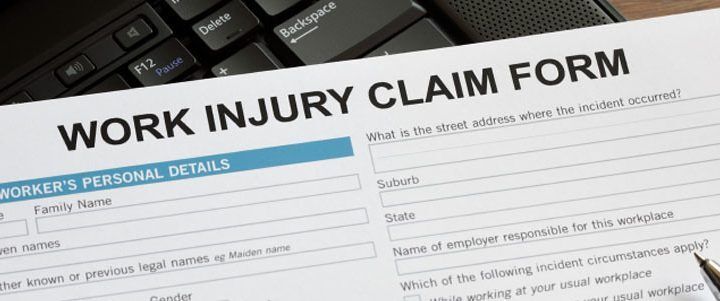Some Injured Workers who have sustained significant industrial injuries have difficulties with respect to their ability to return to the workforce. Workers’ Compensation medical treatment can provide assistance to Injured Workers when they return to the open labor market. These forms of medical treatment specifically designed for returning to work are “Work Hardening” and “Work Conditioning” Programs.
These return to work medical treatment programs can assist Injured Workers in returning to their usual and customary occupations, modified work positions, an alternative work positions or in be provided in conjunction with a job retraining program.
What Is “Work Hardening?”
“Work hardening closely resembles the traditional progressive exercises used in the clinical setting. It involves graded activity prescribed for patients who require physical conditioning before returning to their jobs. It prepares injured workers for their return to work by helping them develop critical physical capacities and worker traits. … Work hardening enables patients to develop the strength, coordination, and endurance they need to perform the physical demands of work. It is designed to use simulated work samples that resemble work tasks.” The Role of the Occupational Therapist–Work Evaluator Debbie Holmes American Journal of Occupational Therapy, May 1985, Vol. 39, 308-13. https://doi.org/10.5014/ajot.39.5.308
What Is “Work Conditioning”?
“Work conditioning (97545) is a work-related, intensive, goal-oriented treatment designed to restore an individual’s systemic, neuromusculoskeletal (strength, endurance, movement, flexibility, and motor control) and cardiopulmonary functions. The objective of the Work Conditioning program is to restore the client’s physical capacity and function so the injured worker can return to work. Prior authorization is required.” [See Jeffrey Vallandingham, D.C. v. Workers’ Comp. Appeals Bd. (Rodriguez) (2007) 72 Cal. Comp. Cases 1697, 1700 (writ denied)]
Are These Programs Considered Medical Treatment? If So, What Are The Implications?
From reported decisions, Work Conditioning Programs are to be considered as medical treatment. The Work Conditioning Program should be prescribed by a physician and placed in the form of a “request for authorization.” See Hernandez vs. The Regency Castle Club 2012 Cal.Wrk.Comp. P.D. LEXIS 293 (Panel Decision) (In the case, Work Hardening Program was considered as medical treatment for which authorization is required)
If “Work Hardening” and “Work Condition” is Considered as Medical Treatment? What Does That Mean?
Yes. Work Hardening and Work Conditioning Programs are considered to be medical treatment. See Hernandez vs. The Regency Castle Club 2012 Cal.Wrk.Comp. P.D. LEXIS 293 (Panel Decision) As a result, a physician must issue a “request for authorization” for the Injured Worker to participate in such a program. Further, the request for authorization will be subject to a Utilization Review program. This means that the request for authorization may be denied. The denial would be subject to an appeal via Independent Medical Review process.
A recent IMR decision noted “[f]or workers without behaviorally related issues and merely a physical gap between the current capabilities and future job requirements, work conditioning/work hardening programs are usually both more appropriate and cost-effective. The patient has substantial gaps between current physical capabilities and actual or projected occupational demands. There are no known contraindications to the treatment program, e.g., certain unstable medical conditions, primary substance abuse disorder or cognitive limitation which would prevent appropriate learning. The patient is committed to recovery.” IMR Decision CM19-00214 (2019) 84 C.C.C. 470.
In sum, there may be problems getting approval for conditioning programs or hardening programs. Denials of these programs may be based upon the Injured Worker’s mental state, whether they have substance abuse issues, whether they have learning deficit issues such as brain damage, or whether they have other medical conditions that may prevent them from fully participating in the program.
What If I Need Advice?
If you would like a “free” consultation concerning any workers’ compensation case, please contact the Law Offices of Edward J. Singer, a Professional Law Corporation. They have been helping people in Central and Southern California deal with their worker’s compensation cases for 28 years. Contact us today for more information.
